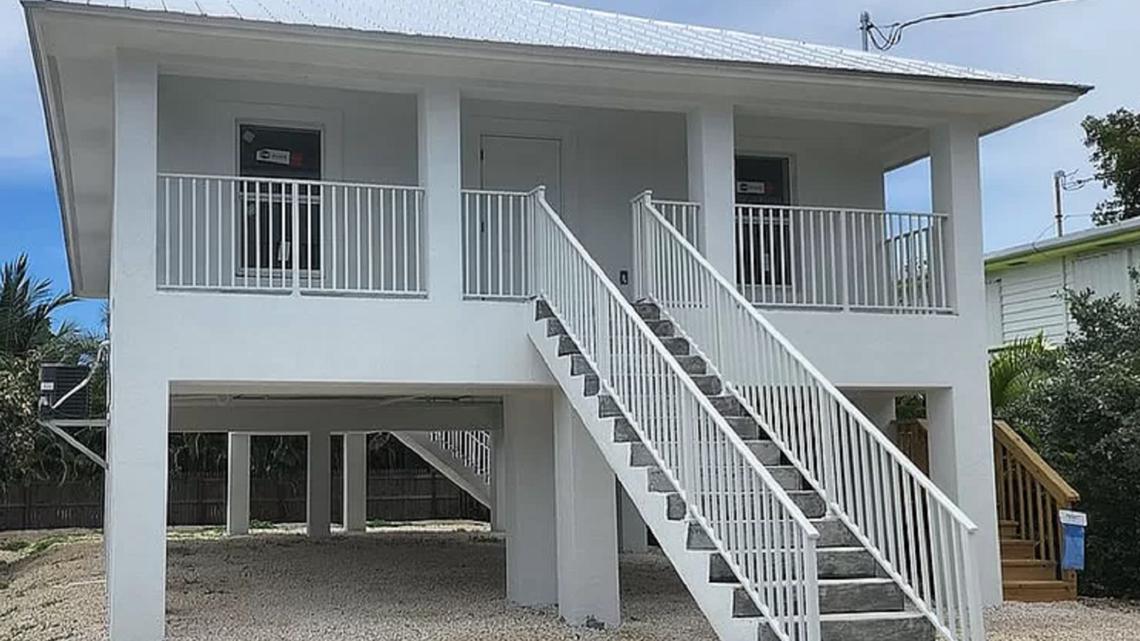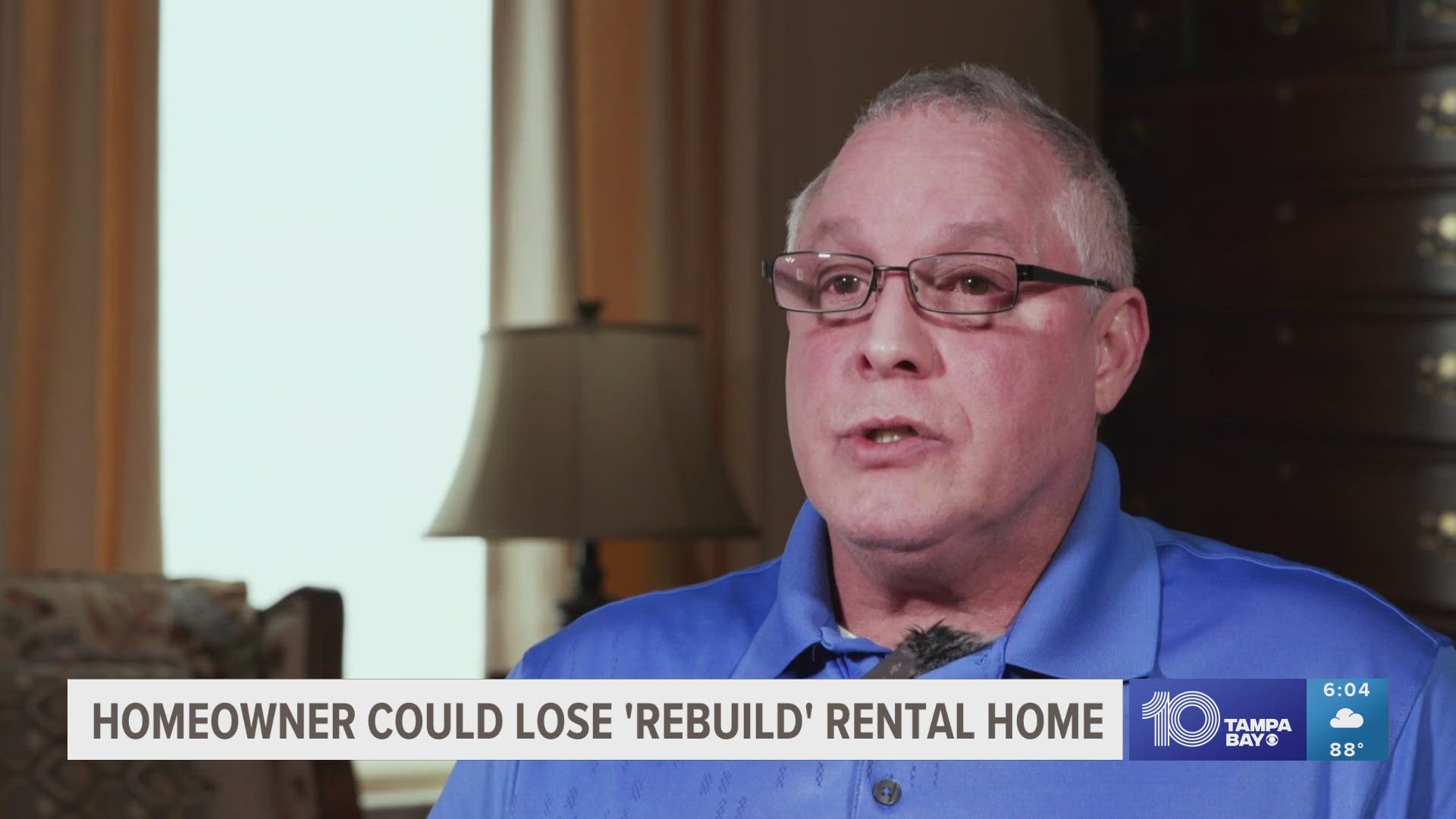BIG PINE KEY, Fla. — A picture is worth a thousand words.
For Robert Kayian, looking through pictures of the Hurricane Irma aftermath makes it hard for him to even speak
“It’s hard to look at it,” Kayian said.
Kayian grew up in Tampa and went to Brandon High. His family home of 30 years in Big Pine Key was destroyed during the 2017 storm. It hit as a Category 4 in the Florida Keys before making landfall again on Marco Island.
“We entered the Rebuild Florida program shortly after Hurricane Irma destroyed our family home,” Kayian said.
But almost seven years later, the Kayians are still waiting to get back home.
“The construction took approximately three years with all the delays,” Kayian said.
The home is now finished. But the Kayians contract is different from the others that 10 Investigates spent months scouring through.
“We were required to rent the home out to a low to medium-income family because we were not occupying the residence at the time the home was destroyed,” Kayian said.
Their home is currently in the Rebuild Florida rental program. It requires them to rent the home out to a low to medium-income family for a period of five years.
“They require that we rent it out for 30% of the low to medium income qualifications. And unfortunately, that amount doesn't cover the cost of property taxes, or insurance to maintain the property. So unfortunately, we will lose this home very soon if we don't find a viable solution,” Kayian said.
He says one solution he thought would work would be to sell his home. So, he listed it.
“We received a demand letter [from the Rebuild Florida Department of Florida Commerce] that stated that we were not allowed to list it for sale. And they demanded $777,000 back if we did, in fact, proceeded with the sale of the home. Now, as you can see, the cost of construction versus that $777,000 demand letter is significant,” Kayian said.
The contract obtained by 10 Investigates shows the state spent $102,000 for contractors to repair his home. Robert was shocked the state asked for $777,000 because, in the agreement, there’s a section that stipulates that if he wanted to sell the property or if he was otherwise breaking the contract, the recipient shall pay to DEO an amount equal to 100 percent of the disbursed grant amount.


“The Rebuild Florida program will not let us rent our home out for enough to cover the property taxes or the insurance, which will cause us to lose the home. They won't let us occupy the home while the five-year rental period is in effect. And third, they won't allow us to sell the property and pay back the contractor,” Kayian said.
We took his case straight to the secretary of the Department of Commerce which oversees the Rebuild Florida Hurricane Irma Repair and Replacement program.
“The individual in question, unfortunately, never was the actual resident of the property,” Florida Commerce Secretary Alex Kelly said. “The only way he was eligible to participate in a program was he signed an agreement that was with the state of Florida, met HUD regulations, met regulations and law that as long as he promised to continue to rent a low to moderate income residents for another five years I believe.
"Yeah, throughout 2028, as long as he as long as he upheld that promise, He was then eligible.”
The Zillow listing shows the property was put on the market for $1 million.
“He essentially tried to make a profit off of what was originally promised to rent the home out to low to moderate-income residents,” Kelly said.
Kayian says they cannot pay the nearly $15,000 in insurance and taxes, so they listed in an abundance of caution. The 63-year-old says at this point he just wants to move back home.
“If this continues and the low-income tenant will lose the right to use it because someone else will acquire the property. We will lose the home that we've had for 30 years and the Rebuild Florida program will lose the property. Everybody will lose,” Kayian said.
We’ve looked at a handful of contracts signed by Rebuild Florida applicants. There is a clause that says the homeowner will not transfer ownership of the property until construction is completed. But again, the state says because they were not living there at the time, this is different.

